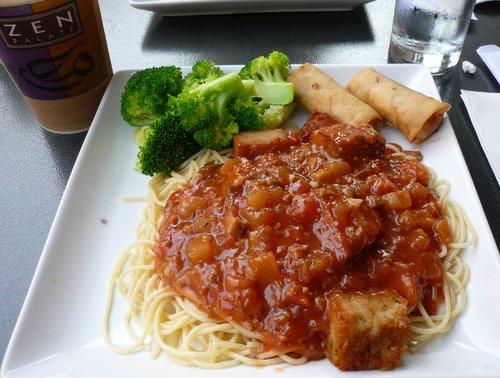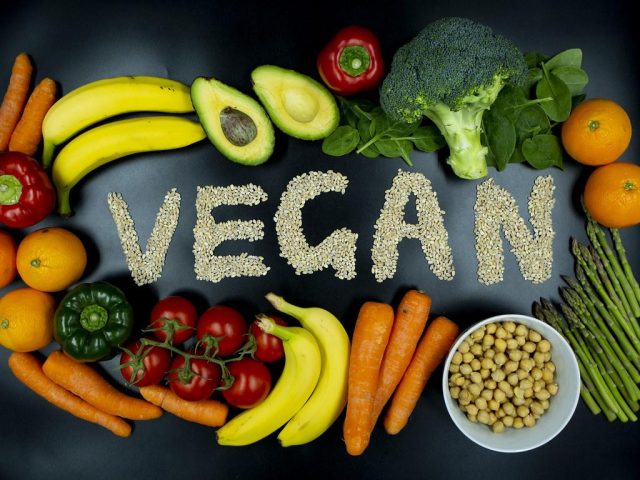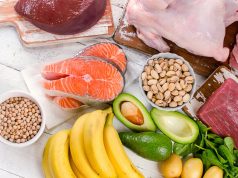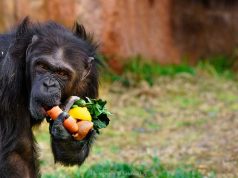Embarking on a vegan journey can be both exciting and daunting, especially when it comes to ensuring that your diet is balanced and nourishing. Whether you’re motivated by ethical considerations, environmental concerns, or the pursuit of better health, crafting a well-rounded vegan diet plan is crucial for thriving on this lifestyle. In this guide, we’ll walk you through the essential steps to create a balanced vegan diet that meets your nutritional needs while aligning with your values. We understand that transitioning to a plant-based diet can feel overwhelming, but with a little guidance and some thoughtful planning, you can enjoy a diverse array of delicious and satisfying meals. Let’s explore how you can embrace this compassionate lifestyle without compromising on health or flavor.
Understanding Nutritional Needs for a Healthy Vegan Lifestyle
Crafting a well-rounded vegan diet is an art that combines knowledge, creativity, and mindfulness. To ensure you’re meeting all your nutritional needs, it’s essential to include a variety of food groups in your daily meals. Here’s a guide to help you build a nutritious vegan plate:
- Proteins: Incorporate a range of plant-based proteins such as lentils, chickpeas, tofu, tempeh, and quinoa. These foods not only provide essential amino acids but also keep you feeling full and satisfied.
- Healthy Fats: Avocados, nuts, seeds, and olive oil are excellent sources of healthy fats that support brain function and hormone production.
- Complex Carbohydrates: Whole grains like brown rice, oats, and barley are rich in fiber and vital for sustained energy levels.
- Vitamins and Minerals: Leafy greens, berries, and citrus fruits are packed with vitamins like A, C, and K, as well as minerals such as iron and calcium.
Balancing these elements can be easier with a simple meal plan. Below is a sample table that showcases a daily vegan meal structure:
| Meal | Components |
|---|---|
| Breakfast | Oatmeal with almond milk, topped with chia seeds and fresh berries |
| Lunch | Quinoa salad with mixed greens, chickpeas, avocado, and lemon-tahini dressing |
| Dinner | Stir-fried tofu with broccoli, bell peppers, and brown rice |
| Snacks | Carrot sticks with hummus, or a handful of mixed nuts |
Remember, transitioning to or maintaining a vegan lifestyle is a journey. Embrace the variety of plant-based foods available, and don’t hesitate to experiment with flavors and textures to keep your meals exciting and fulfilling.

Incorporating a Variety of Plant-Based Proteins
Embracing a diverse range of plant-based proteins is essential for crafting a nutritionally complete vegan diet. It not only ensures you receive all the necessary amino acids but also keeps your meals exciting and satisfying. Legumes, such as lentils, chickpeas, and black beans, are a staple, offering a robust protein punch along with a healthy dose of fiber. Incorporate tofu and tempeh for their versatility and ability to absorb flavors, making them a delightful addition to stir-fries and salads.
Don’t overlook nuts and seeds like almonds, walnuts, chia, and flaxseeds, which not only provide protein but also healthy fats that are vital for brain health. Whole grains such as quinoa, farro, and bulgur can significantly boost your protein intake while adding texture and heartiness to your dishes. For those who crave variety, experimenting with plant-based protein powders can be an effective way to enrich smoothies or baked goods.
| Protein Source | Protein Content (per 100g) |
|---|---|
| Lentils | 9g |
| Chickpeas | 19g |
| Tofu | 8g |
| Quinoa | 4g |
| Almonds | 21g |
By combining these diverse protein sources, you can create a well-rounded vegan diet that meets your nutritional needs while celebrating the vibrant flavors of plant-based cuisine. Remember, variety is the key to a balanced and enjoyable vegan lifestyle.
Ensuring Adequate Intake of Essential Vitamins and Minerals
Crafting a well-rounded vegan diet plan requires attention to the intake of essential vitamins and minerals. A plant-based diet can be rich in nutrients, but there are certain vitamins and minerals that need careful planning to ensure you meet your daily requirements. Here are some key nutrients to focus on:
- Vitamin B12: This is crucial for nerve function and the production of DNA. Since B12 is primarily found in animal products, vegans should look for fortified foods or supplements.
- Iron: While plant-based sources like lentils and spinach are rich in iron, the body absorbs non-heme iron less efficiently than heme iron from animal sources. Pairing these foods with vitamin C-rich items can enhance absorption.
- Calcium: Vital for bone health, calcium can be sourced from fortified plant milks, tofu, and leafy greens like kale and broccoli.
- Omega-3 Fatty Acids: Essential for heart and brain health, omega-3s can be obtained from flaxseeds, chia seeds, and walnuts.
| Nutrient | Source | Daily Requirement |
|---|---|---|
| Vitamin B12 | Fortified cereals, supplements | 2.4 mcg |
| Iron | Beans, lentils, spinach | 8-18 mg |
| Calcium | Fortified plant milks, tofu | 1000 mg |
| Omega-3 | Flaxseeds, chia seeds | 1.1-1.6 g |
Balancing these nutrients involves a variety of whole foods and, when necessary, fortified options or supplements. Remember, planning your meals with these nutrients in mind can help maintain a thriving vegan lifestyle while supporting your overall well-being.

Crafting Delicious and Balanced Vegan Meals
Creating a balanced vegan diet plan can be both a rewarding and enjoyable endeavor. The key is to focus on a variety of foods that provide all the essential nutrients your body needs. Here are some tips to help you craft delicious and nutritious meals:
- Include a variety of protein sources: Think beyond tofu and explore the world of legumes, nuts, seeds, and whole grains. Quinoa, lentils, chickpeas, and hemp seeds are excellent choices.
- Embrace the rainbow: Incorporate a diverse range of fruits and vegetables into your meals. Each color represents different phytonutrients and antioxidants, which are vital for optimal health.
- Don’t forget healthy fats: Avocados, nuts, seeds, and olive oil are fantastic sources of healthy fats that help in nutrient absorption and hormone production.
For a well-rounded vegan diet, balance is crucial. Here’s a simple table to help guide your daily intake:
| Nutrient | Daily Recommendation | Sources |
|---|---|---|
| Protein | 50-70g | Beans, lentils, quinoa |
| Calcium | 1000mg | Fortified plant milks, almonds |
| Iron | 18mg | Spinach, lentils, tofu |
Remember, the most important aspect of a vegan diet is to enjoy the journey of discovering new flavors and foods. This not only enriches your palate but also ensures that you receive a full spectrum of nutrients to keep you thriving.








































